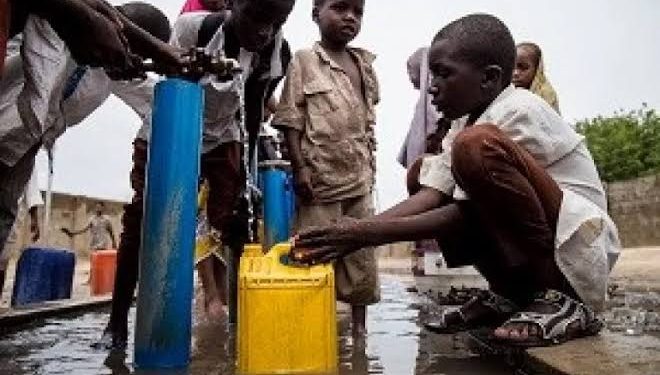Following the recent outbreak of cholera in Nigeria, the Renevlyn Development Initiative (RDI) has tasked the governments to improve access to water and warned that the cholera outbreak in the country and the associated deaths are as a result of unsafe water sources due to problems with the country’s water supply system.
The group recalled that In the recent cholera outbreak in Lagos, a total of 24 deaths were recorded by Wednesday, June 19, representing the highest number of fatalities among the 10 states in Nigeria that are most heavily affected by the disease.
These 10 states make up 90% of the total burden of cholera cases in the country, and include Bayelsa, Zamfara, Abia, Cross River, Bauchi, Delta, Katsina, Imo and Nasarawa.
RDI’s Project Officer, Ifeoluwa Adediran in a press release explained that the cholera outbreaks happen regularly because little money is invested in the water sector -at both state and federal levels.
“The periodic cholera outbreaks are very disturbing and reinforce our arguments that the abysmally low investment in the water sector at both state and federal level are further complicated by poor maintenance of the facilities that house and frieght water from the waterworks to the different localities they service,” she said.
Adediran further emphasized that people use unsafe water sources because they have no other choice.
“In some communities the residents resort to unwholesome sources to get water. These are the issues that fuel the cholera outbreaks. In Lagos where there have been more deaths we are worried about the integrity of pipelines that convey water to localities.
“In many communities, the pipelines right of way include gutters where breakages and other breaches ususlly occur and are not addressed for months and years in some cases”
Despite commendable sensitization efforts by Federal and State Governments, RDI calls on the government to prioritize the provision of clean water to remote areas and ensure pipeline integrity to prevent future cholera outbreaks.
To combat cholera and other waterborne illnesses, the group recommends increased investment in the water sector, paired with regular maintenance of delivery systems, to ensure clean water is available and affordable for all citizens.

